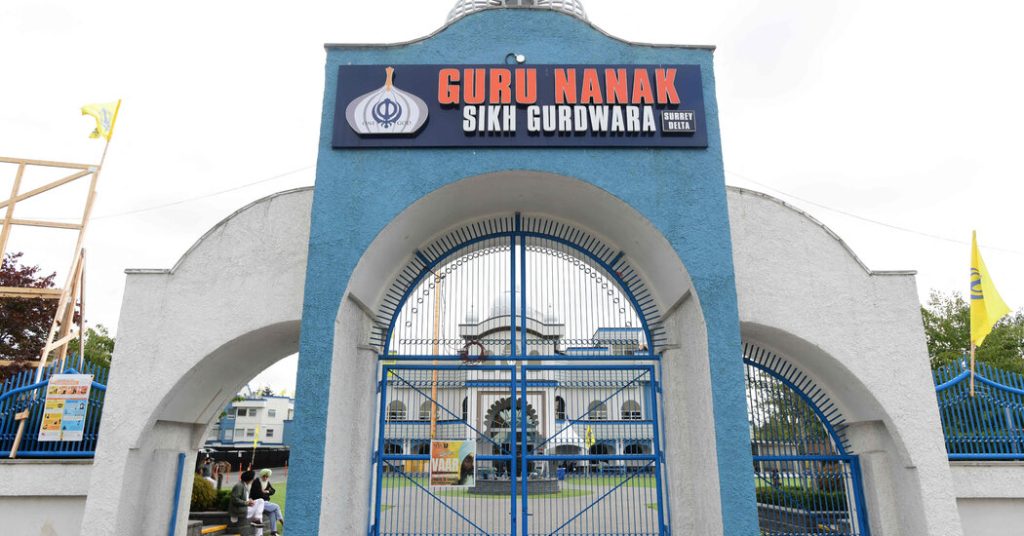Three Indian nationals have been arrested and charged in the killing of Sikh leader Hardeep Singh Nijjar in British Columbia in June, intensifying a rift between Canada and India. Nijjar, a self-proclaimed Sikh nationalist advocating for the independence of Indian-occupied Punjab, was shot near the Sikh temple he led. His killing set off a political dispute between the two countries, with Canadian Prime Minister Justin Trudeau accusing India of orchestrating the attack.
The three men in custody, identified as Karan Brar, Kamalpreet Singh, and Karanpreeet Singh, were arrested in Edmonton, Alberta, and charged with first-degree murder and conspiracy to commit murder. They had been living in Canada for several years but were not permanent residents. Additional investigations are ongoing to determine the involvement of the Indian government in Nijjar’s killing, with the Canadian police citing challenges in their relationship with Indian investigative partners.
In September, Prime Minister Trudeau claimed that agents of the Indian government were linked to Nijjar’s killing based on intelligence gathered by Canadian authorities. Trudeau raised the issue directly with Prime Minister Narendra Modi during a Group of 20 summit in New Delhi and vowed to pressure India to cooperate with the investigation. Canada also expelled an Indian diplomat described as the de facto head of India’s intelligence agency in Canada in response to the allegations.
India vehemently denied the accusations made by Canada, with Prime Minister Modi rejecting them and the foreign ministry disavowing any connection between the Indian government and Nijjar’s killing. The ministry labeled the allegations as absurd and emphasized the importance of maintaining positive relations between the two countries. The case has escalated tensions between Canada and India, with both nations exchanging denunciations over the incident.
Hardeep Singh Nijjar, born in Punjab, moved to Canada in the mid-1990s after facing difficulties in gaining entry to the country. He became a Canadian citizen in 2015 and was elected president of a Sikh temple in British Columbia in 2020. Nijjar was a key figure in British Columbia advocating for a referendum supporting the establishment of Khalistan, a separate Sikh nation including Punjab. Despite being declared a terrorist by the Indian government, Nijjar’s movement was relatively unknown in Punjab.
In June, Nijjar was ambushed and shot near the Sikh temple, leading to his death. While investigators confirmed that masked men were responsible for the attack, they did not disclose whether it was politically motivated. The killing of Nijjar widened the rift between Canada and India, with the subsequent arrests of three Indian nationals further exacerbating tensions between the two nations. The case highlights the complex dynamics and challenges in international relations and cross-border investigations.


